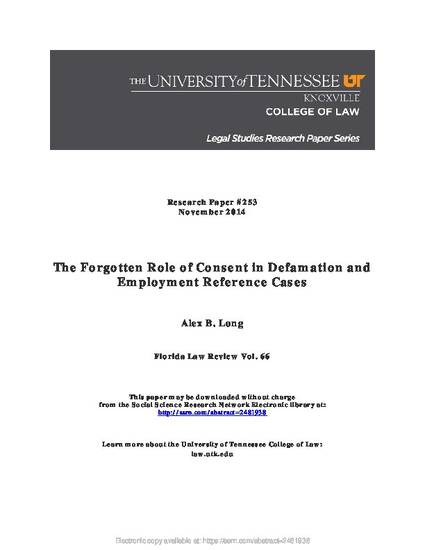
Article
The Forgotten Role of Consent in Defamation and Employment Reference Cases
Florida Law Review
(2014)
Abstract
As has been well documented, the fear of defamation suits and related claims leads many employers to refuse to provide meaningful employment references. However, an employer who provides a negative reference concerning an employee enjoys a privilege in an ensuing defamation action if the employee has consented to the release of information concerning the employee’s job performance. Thus, many attorneys now advise prospective employers to have applicants sign consent agreements, permitting the prospective employer to conduct an investigation into the applicant’s work history and releasing from liability anyone who provides information about the employee’s work history. The Restatement (Second) of Torts has been highly influential in shaping the development of the defense of consent in the defamation context. This article looks at the consent defense within the context of employment reference cases. Specifically, the article examines the consent defense as described in the Restatement from an historical perspective and argues that the authors fundamentally misstated the law in a manner that has had negative consequence for employees who have been the victims of defamatory references.
Keywords
- Defamation,
- References,
- Employment,
- Torts,
- Consent,
- Waiver
Disciplines
Publication Date
2014
Citation Information
Alex B. Long. "The Forgotten Role of Consent in Defamation and Employment Reference Cases" Florida Law Review Vol. 66 (2014) Available at: http://works.bepress.com/alex-long/12/
